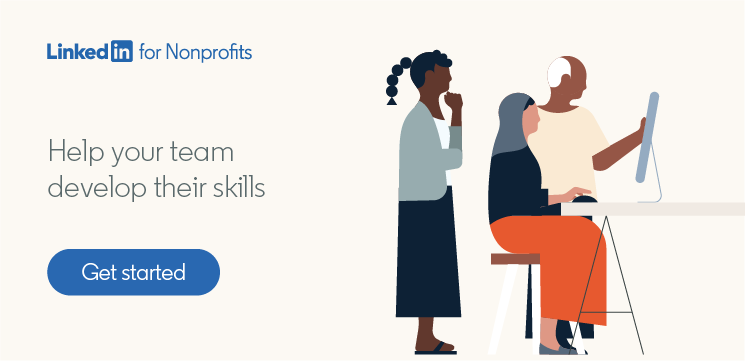
Why DEI Efforts Are So Crucial For Nonprofits
DEI for nonprofits is undeniably needed, especially for organizations that want to continue making a difference while allowing their employees to feel affirmed and empowered. An effective, intentional nonprofit will be one that’s not only passionate about working towards its mission but also deeply intentional in its efforts to implement DEI into its very fabric.
DEI refers to Diversity, Equity, and Inclusion in a given workplace. These three elements coexist to ensure that organizations wholly validate different perspectives and backgrounds, treat every employee equitably and without harmful prejudices, and foster spaces where all voices are highly valued, regardless of age, sex, gender, or race.
It’s one thing to publicly claim to advocate for DEI, but if a nonprofit doesn’t accurately pair their words with internal and external actions, there will inevitably be mistrust. DEI greatly empowers underrepresented, marginalized communities, opening doors of opportunities that had previously remained shut. It calls for more awareness of certain issues within the workplace that are caused by discriminatory biases and microaggressions. Therefore, it’s necessary to take DEI initiatives seriously.
Nonprofit organizations that implement DEI efforts will be sure to witness a radical shift in their own work culture—some of which include higher productivity amongst employees, an appreciation for diverse perspectives, and a form of unity that fights for solidarity and justice.
Higher Productivity
If a nonprofit actively prioritizes DEI, employees will feel more emboldened to build meaningful connections and achieve organizational goals without limitations. When they feel that their individual identities are not only accepted, but genuinely celebrated by their workplace, they’ll be more likely to contribute to the nonprofit’s cause and strive for greater impact.
DEI for nonprofits exists to level out the playing field so that different identity markers do not become hindrances to job performance or career growth. It proves that there is untapped potential, and that DEI efforts can heighten productivity and yield greater results.
The way that nonprofit organizations uplift their employees will also directly impact how they interact with target communities and local partners. An employee that feels a sense of belonging will be able to advocate for their organization more confidently, helping to reach a greater number of people who may be in need of their services and assistance.
Diverse Perspectives
When many fields and industries are dominated by the same, specific demographic of people, there’s not much room for others to develop their own career paths or utilize valuable skill sets. Nonprofit organizations need to help disrupt this pattern in the mainstream and hold themselves accountable when screening and hiring staff.
With a diverse team of envisionaries and problem solvers, a nonprofit will be able to explore avenues of creativity and direction that they would not have considered otherwise. Every individual’s lived experience is different. As a result, they’ll be able to build the mission in varying ways. This will undoubtedly add important perspectives to the nonprofit, allowing the staff to come up with efficient solutions that aren’t always one-size-fits-all.
It’s not enough for diversity to solely exist amongst the regularly paid employees—it must also be fully present within higher leadership. Although it’s possible for an employee to encourage change within a nonprofit that doesn’t foster healthy DEI, a leader or board member has considerable power over crucial decisions that can affect the way the organization approaches the initiative.
Unified Work Culture
Unity plays a vital role in a nonprofit’s success. Staff and leadership that operate under a mutual purpose will be more determined to work towards it. But without the productive collaboration of a team, as well as a collective alignment of core values, organizations may fall into the dangers of isolation and miscommunication.
Nonprofits need to be careful not to become complacent or overlook injustice in the name of unity, as it can become a comfortable umbrella term for idleness. With unity comes necessary waves of discussion, debate, and a seemingly never ending list of action items. But progress requires growing pains, and in order for a nonprofit to truly become inclusive and equitable, it must be willing to put in the work.
Consider all the available resources that assist in DEI training for nonprofits. Leaders can invest in their staff’s educational development, introducing them to concepts and theories that provoke deeper thinking. They can discover what it means to be in solidarity with others, advocating for causes and rights that go beyond the organization’s sphere of influence.
As a nonprofit works together to pursue more learning opportunities, continued growth, and authentic conversations, unity will be a natural, noteworthy byproduct.
Take your nonprofit to the next level and develop your team, your organization, and your own skills with these LinkedIn’s free nonprofit resources.

